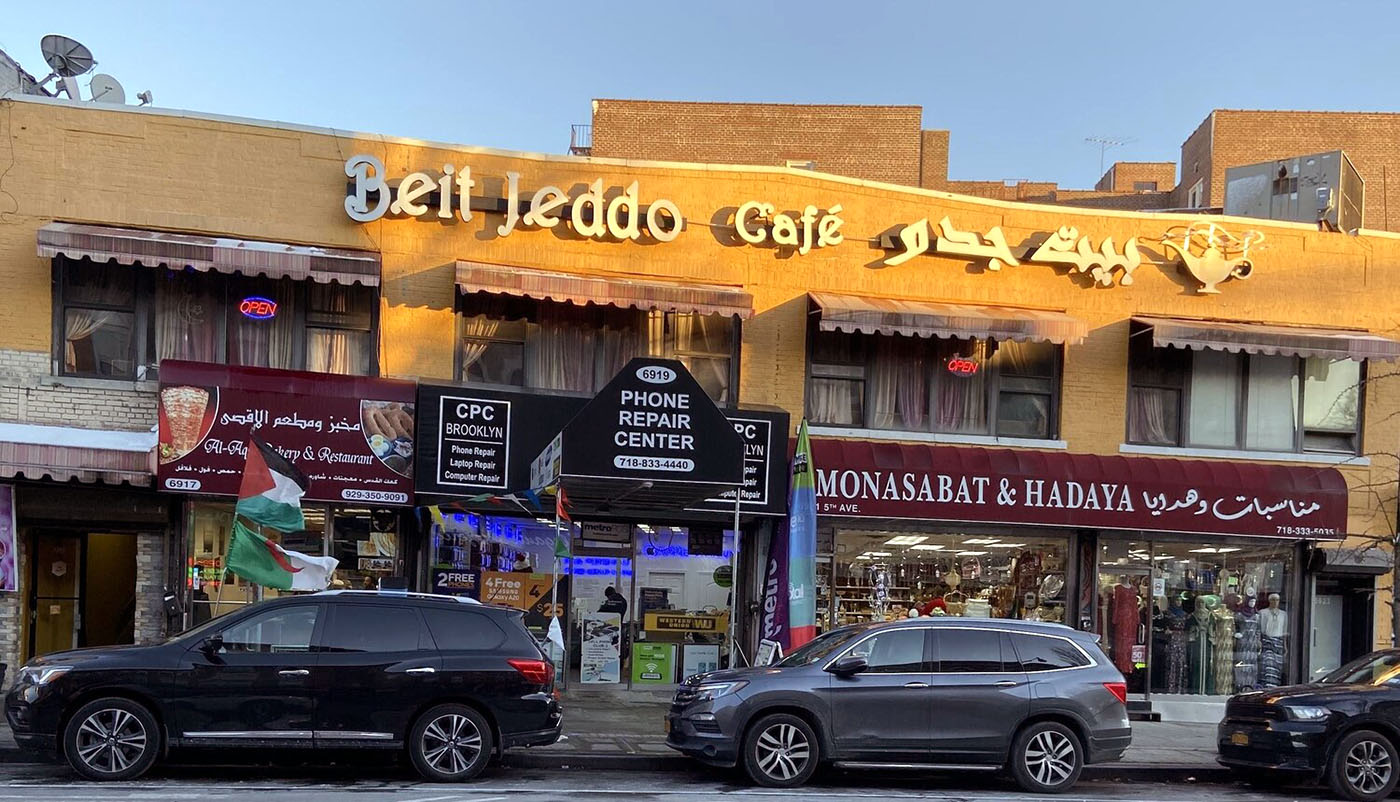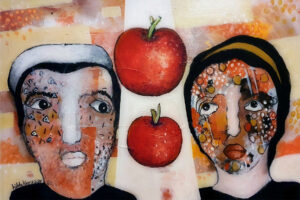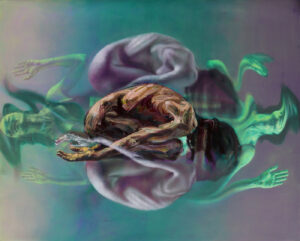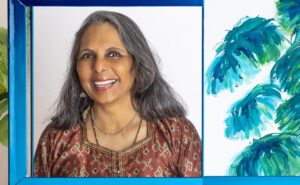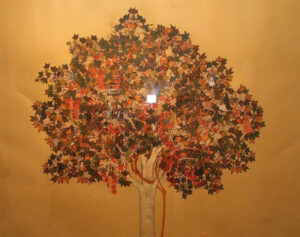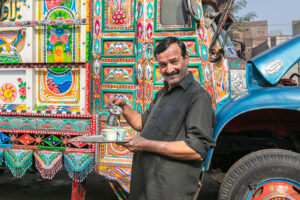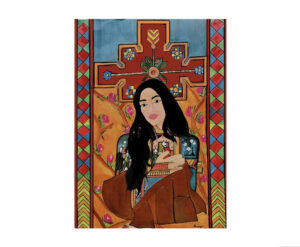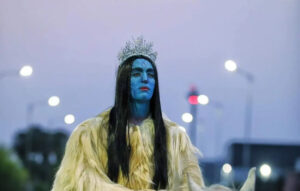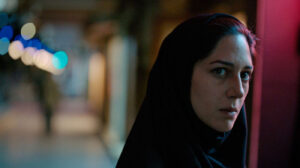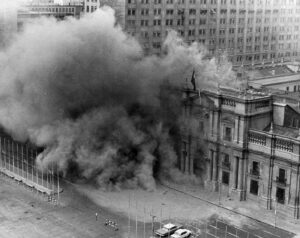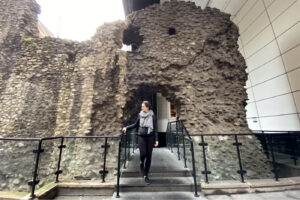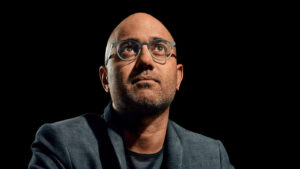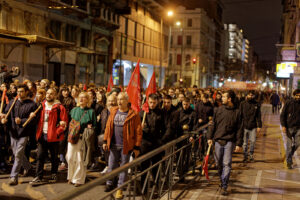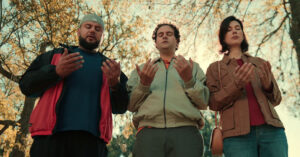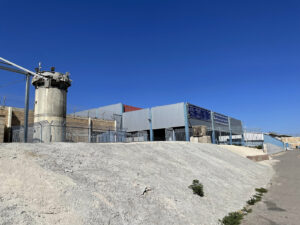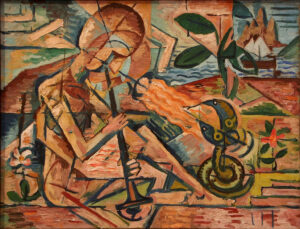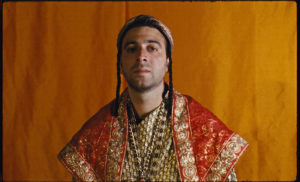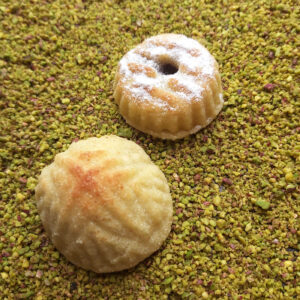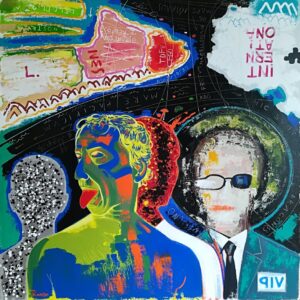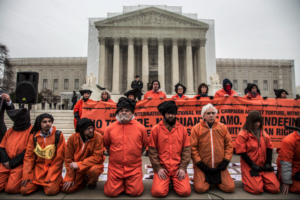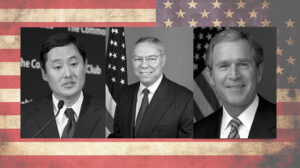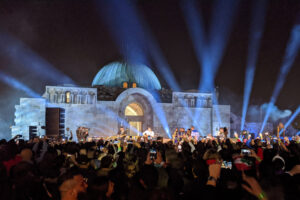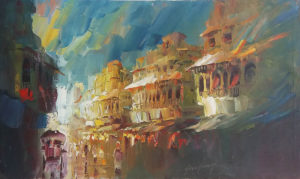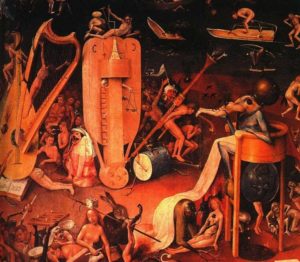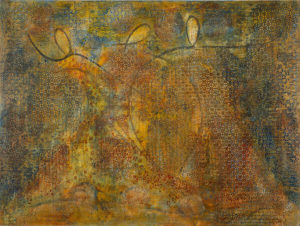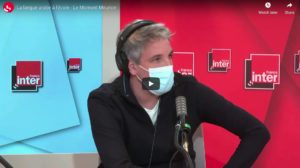Between Two Moons, a novel by Aisha Abdel Gawad
Doubleday 2023
ISBN 9780385548618
R.P. Finch
Between Two Moons, by Aisha Abdel Gawad, is a novel of duality, both delightful and foreboding. The author presents a nuclear family attempting to avoid fission, all of its spinning particles bound together by the strong force of Muslim culture and parental love, set against the centrifugal forces embodied, to varying degrees, by Sami, the son, and twin daughters Lina and Amira.
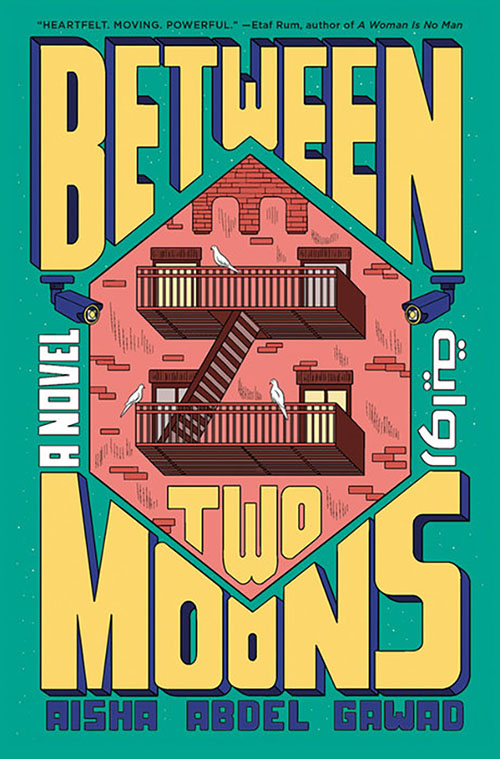
The setting is what the narrator, Amira, calls “Arabland,” the Muslim section of Bay Ridge, Brooklyn. The parents are Egyptian-born; Baba, the father, generous to a fault, owns a butcher shop below the apartment, and Mama is a homemaker with a steady hand and a secret history subsequently disclosed to her daughters. The twins are about to graduate from high school; Amira cannot wait to leave the confines of Bay Ridge for college, while Lina simply can’t wait — without knowing exactly what she is waiting for. Lina’s spinning energy creates a force field that pushes against every familial constraint, while Sami’s dark energy, upon his release from prison, risks getting him ejected from family bonds altogether.
The novel’s epigraph, a quotation from the Quran referencing a moon split in two, provides an apt introduction to the dynamics of this Muslim family’s life. The twins find themselves subject to the gravitational force exerted by both the surrounding secular world and by their parents, who exhibit, and expect their children to exhibit, the Muslim-in-America immigrant ethic of obedience and daily religious practice. The religious status of Sami is, as is his status in general, almost entirely murky.
As the tale opens, the police raid a hookah café on their street and, to the consternation of the neighborhood, drag the Libyan owner off to an undisclosed location. This event gives rise to repeated commentary by the narrator, highlighting the extent to which the residents of Arabland feel continuously under police surveillance. The author presents the reader with a police intelligence report on the Muslim communities in Brooklyn. Amira does not see the report, but has become aware of the phenomenon of surveillance. At one point, she notes:
[W]e would all be watched in the years after the towers fell. Watch them. Never let them out of your sight. Look at them through binoculars, in grainy security footage, through the eyes of informants and undercovers, [. . .] in mosques, in restaurants, on subways.
The daily life of Muslims in America, within the family and their supportive neighborhood, is set in stark relief against the non-Muslim world surrounding them, bringing a generalized sense of surveillance and worry about police action.
Lina, the more conventionally beautiful twin, is wild; for Amira, wildness is aspirational. Both drink on the sly, but Lina, with no job, is often found leaving their shared bedroom to sneak off to clubs in Brooklyn and Manhattan. Amira, who works as a part-time receptionist at the local Islamic Community Center, often finds herself rescuing Lina from the dangers of her exploits.
Each twin is embedded in a questionable relationship. Lina is drawn to Andres, a Manhattan club owner who claims he can provide her with an entrée into the modeling profession. Amira, upset by the police raid on the café, attends a protest where she meets Faraj, who says he is a community organizer. Although Amira keeps her distance, Faraj is insistent on seeing her again, and she acquiesces. Yet Amira is suspicious of Faraj, whose brother has been deported to Pakistan, because Faraj is oddly intent upon discussing their brothers and regularly questions Amira about Sami.
One way to interpret Between Two Moons is as a novel of contrasts, Abdel Gawad deftly engaging in a delicate balancing act. On one hand, she provides an often light-hearted portrait of this family’s daily life, especially the close sibling relationship between Lina and Amira as they push each other, and their parents, beyond their comfort zones. The twins confide in each other in their room and on their fire escape, and participate in the family’s shared religious routines, performing wudu and prayer with their parents during this hot summer’s Ramadan.
In contrast, Abdel Gawad sets out a dark tale when it comes to Sami. Given to drama and tantrums in his early childhood, he was subjected to repeated juvenile detention during his teens. Later, when he was back home, he had a habit of leaving it unannounced, often for days at a time, causing his parents endless worry and repeated forays into the surrounding urbanscape in search of their son.
Abdel Gawad’s writing provides vivid and minute detail illuminating both the inner and the outer lives of most of her characters, contrasting with tantalizing, opaque renderings of intents, events, and dialogue involving Sami that are calculated to leave the reader appropriately in the dark.
This tale turns even darker in the aftermath of Sami’s prison release. He returns, skeletal and drawn, to the family apartment, continuing his occasional disappearing act, but now in a much more sinister key. He shaves his head, revealing the jagged scar received in prison. Amira catches him watching disturbing videos and finds maps in his room with circles drawn around neighborhoods. She overhears him making suspicious phone calls in their stairwell and sees him in furtive encounters not only with the young imam newly installed in their mosque, but also with, of all people, Faraj.
Amira is worried, and on the fire escape there is a fleeting moment of candor when Sami suddenly sighs and tells her, “I’ve gotten myself into something [. . .] I don’t know how to get out of.”
And later, from the fire escape, she watches Sami’s stormy, middle-of-the-night rendezvous with a carful of men in hoodies. They all scuffle in the street, and after calming Sami down, the men hand him a backpack.
Another way to consider Between Two Moons is as an instance of the “stranger comes to town” archetype. This family exists in dynamic equilibrium. There are generational stresses as to matters of religious customs and social mores, as well as conflict between the twins themselves, but it is an equilibrium nonetheless — until Sami throws the entire status quo fundamentally off-kilter when he is released and re-enters the household after five years in the state penitentiary. Amira had hoped that she and Lina would be adults by the time he is released, due to their history of uneasy relations with him, but he is released early for a reason that, although it may not be as it appears, informs the rest of the novel.
As to her craft, Abdel Gawad winds up her characters and sets them in motion in their Bay Ridge neighborhood. Without the extensive up-front exposition often found in debuts, the author knows how to surround her characters with necessary bits of description all along the way, grounding characters in their world. Abdel Gawad also knows how to create shocks that happen before the reader can even stop to notice, and how to imbue her characters’ more extended predicaments with palpable tension.
The author’s deft writing provides subtle humor and surprises that seem inevitable in retrospect. In this tale, a storm is brewing, clouds gather, and a hurricane breaks just as the plot reaches its climax. Is this a cliché in the making? No, in Abdel Gawad’s able hands it is a dramatic touch that works. And she constructs stand-out set pieces, including a well-timed family day at Coney Island, the defiling of the neighborhood mosque, and the long night of Laylat al-Qadr, pointedly attended by Sami, in which the community, including children, come together in their mosque to attend services through the night that are intended to wash away sins.
“You can wipe your sins out tonight,” Sami told us all at suhoor that morning.
“It’s not quite that simple,” Mama said.
“No, he’s right,” Baba said. “I remember. You pray all night long, and next day you are innocent like baby.”
There are, however, some craft problems. In one instance, a dramatic set piece in which the parents and Amira set out separately to search for Lina during a blackout is resolved through an unnecessary coincidence. More significantly, several lengthy scenes meant to flesh out the nuanced nature of the characters feel redundant; because the nature of the characters has already been thoroughly established, these scenes do no meaningful work in moving the plot forward.
This Muslim family may be caught between two moons, but the family is itself a constellation of stars, each with a force both attracting and repelling the others. The author’s creations display their humanity, in both its positive and negative aspects. Abdel Gawad imbues the twins, Amira in particular, with an engaging internality as they constantly take the temperature of their respective relationships within the family and with third parties who exert their own destabilizing pull.
In painting her narrative world, Abdel Gawad knows exactly when to use precise brushstrokes to bring into crystal-clear focus the fine details of daily life within this observant family — in a supportive Muslim community within a broader hostile environment — and exactly when to lay on a thick impasto of language in order to leave certain underlying matters tantalizingly obscured.
Finally, and importantly, the author provides a needed perspective for those not particularly knowledgeable about Islamic practices and aspects of American Muslim family life. There are frequent references to customs and use of vocabulary with which non-Muslims in this country should become familiar. In the end, Abdel Gawad expertly cuts through the mystique and misinformation that too often surround American Muslims in a way that displays their humanity and their culture — which many persist in seeing as fundamentally “other” than what constitutes the “American” way of life.



